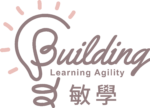MYP is a learner-centred and inquiry-based education. It is a paradigm shift for some educators who are new to the MYP. Before teachers can effectively implement inquiry-based teaching, we must understand the two concepts, “teaching as inquiry” and “learning inquiry”. The two concepts go hand in hand. To develop students’ ownership of learning and support their inquiry learning, teachers must stay curious and continue to pursue intellect and effective teaching strategies. Different levels of inquiry have different implications for the ongoing teacher professional development. It is essential for teachers to set their own learning goals and identify areas for improvement so that they are not feeling overwhelmed in implementing an inquiry-based teaching approach.
Additionally, there are lots of misconceptions about inquiry-based teaching and learning. It is beneficial to distinguish what inquiry is and what inquiry is not. To encourage authentic inquiry and develop the agency of teachers and students, we need three important ingredients: voice, choice, and ownership.
There are different phases of inquiry.
- Structured Inquiry: The lower level is structured inquiry. That means the teacher is the sole knowledge distributor, and the students have the lowest ownership of their learning. The teacher decides the topic and identifies an issue or a problem for students to explore and investigate. Students follow the teacher’s direction and questions to complete step-by-step procedures. At this stage, learning is very much teacher-driven.
- Guided Inquiry: The interaction between the teacher and student increases in this stage. The guided inquiry process puts the emphasis on students, and they have slightly greater autonomy in terms of choice for topic and product. The teacher designs the materials to scaffold thinking and helps students develop relevant skills.
- Open Inquiry: Teachers plays different roles in this phase of inquiry. The complexity of teaching is increasing even more. Teachers define the knowledge framework in which the inquiry will take place and create time and space for students to generate their own questions and approaches to solve a problem. Students are constantly involved in the design-thinking process that involves risk-taking, knowledge acquisition and decision-making. Teachers must equip skills to facilitate students to ask appropriate and challenging questions during their inquiry process.
- Learning cycle: I think when MYP year 5 students develop their personal project, they fit into this learning cycle. They have free choice of topic, concept, content, context, process and product. This is the inquiry phase that students are encouraged to follow their natural curiosity. In the learning cycle, students have full ownership of their learning. This is also how students enhance their personal values and beliefs and develop their own self-identity. Although the ownership of student learning is increasing, it doesn’t mean the teacher’s job gets easier. Instead, I think it gets more complex as teachers need to have the skills to conduct cognitive coaching conversations and help students identify their WHY of doing.
In all phases of inquiry, teachers should promote originality, adaptation, design, creativity, and collaboration throughout. These elements should be weaved through the inquiry-based teaching and learning process so that we can be more prepared to the future world of Volatility, Unknown, Complexity, and Ambiguity (VUCA world).
You can click the image below to down the PDF file.
This work is licensed under a Creative Commons Attribution-NonCommercial 4.0 International License. In short, you can copy, distribute and transmit the work, but you must attribute the work. This work is not for commercial purposes.








This strategy is such good tool to resonate the MYP philosophy of Inquiry
Thanks, Mary. it’s important that we, teaches, continue to pursue intellect and support our students in developing their ownership of learning and agency.
Alison
Another Visually Clear and impactful collation of inquiry.
Alison , this has been very useful personally .
Thank you, Shweta. I am glad to hear this is helpful.
Best,
Alison